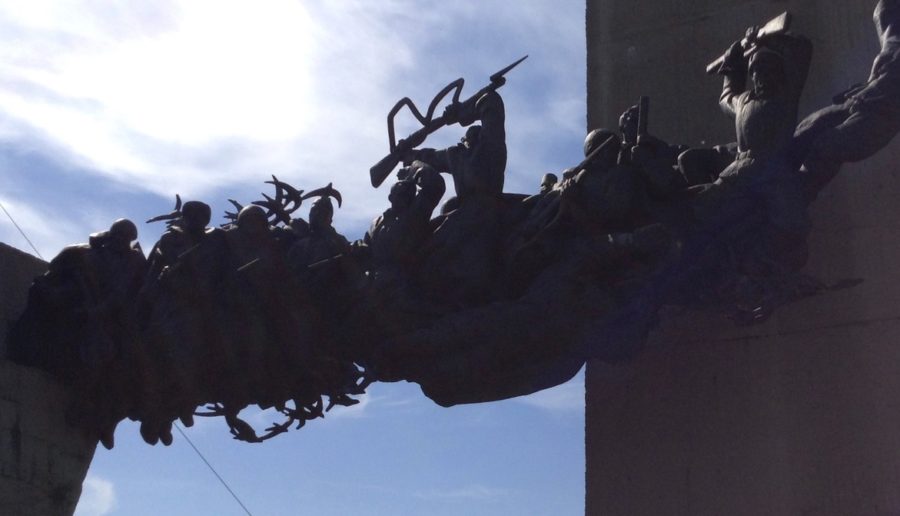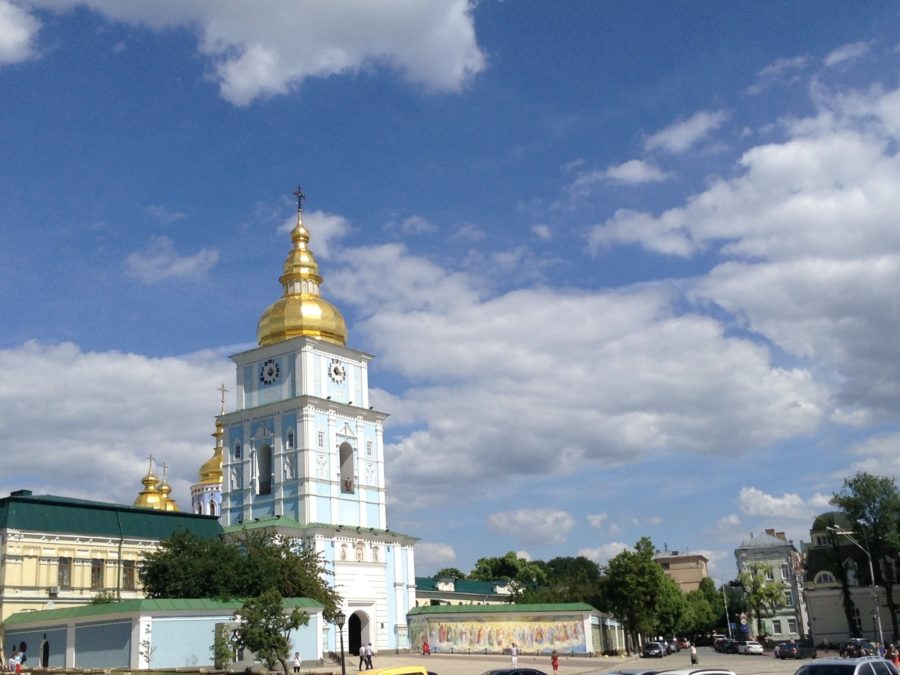2nd March 2022 Belgrade, Serbia
Ukraine: a choice between right and wrong

The world watched with horror as Vladimir Putin ordered his armed forces to launch an unprovoked, unjustified and illegal attack upon Ukraine. People all around the world have witnessed with admiration the extraordinary calm courage shown by the people of Ukraine.
As a young diplomat I first travelled to Ukraine in the late 1980s. I was in Moscow when the USSR collapsed and the world, including Russia, recognised Ukrainian independence. I was living in Moscow again during the Orange Revolution when the people of Ukraine took to the streets in defence of freedom and democracy. I later visited Ukraine from London after the illegal annexation of Crimea, and again with OSCE ambassadors to see the destruction wreaked by conflict in the Donbas.

A Russian diplomatic friend once gave me a CD of Soviet WWII songs titled ‘Russians Don’t Want War’. I don’t believe most Russians want war now. Judging by the hundreds of Russian doctors, athletes, journalists, cultural figures, regional politicians, and the hundreds of thousands of ordinary people adding their names to petitions, they do not.
This is not a war of the Russian people.
I am appalled by the senseless suffering inflicted on Ukraine and am worried about friends and colleagues there. But I am also worried about the consequences for friends and colleagues in Russia and appalled to see the dreadful lies that are being told to the Russian people.
Russian media are not allowed to talk about ‘war’ on ‘invasion’. They are not allowed to report that Russian missiles are hitting Ukrainian homes, or that many of the young Russian soldiers sent to attack Ukrainians defending their homeland will not return alive.
Russian journalists are required to broadcast false allegations, diplomats instructed to spread disinformation and defend the indefensible, military and security professionals ordered to wage a war based on false claims.

I welcome Serbia’s public expression of concern at the tragic situation in Ukraine and commitment to Ukraine’s territorial integrity and to the principles of international law and international commitments, and its promise of humanitarian support.
I trust that blunter messages will have been delivered to Moscow privately and hope that Serbia will join the huge number of states condemning this unprovoked attack at the UN and in other international organisations.
Serbia is a friend of Russia and of Ukraine. I understand why Belgrade has been reluctant to be caught up in a dispute between Moscow and Kyiv. But when it comes to simple questions of right and wrong tough messages can be delivered most powerfully by friends.
Many times in the past few weeks I have heard in Belgrade that Russia would not invade Ukraine because to do so would be irrational. I hoped that would prove true but feared it would not. However irrational it may seem to the rest of the world, Russia has launched a massive military strike across the whole country, with no regard to the severe human, economic or other consequences for the people of Ukraine, Russia or the wider region. That is why countries across Europe, whatever their internal politics, whatever their economic interests, whatever international organisations and alliances they belong to, have been united in condemning this unprovoked attack and unequivocal in their support for Ukraine.
I hope and believe that Serbia will also use its friendship with Russia to tell Putin clearly that Belgrade cannot support this catastrophic error. This could be a decisive moment for this country to show international leadership and help bring this unnecessary conflict, destruction and loss of life to a swift end.
This article was originally published in Serbian language daily newspaper and news portal NOVA on 1 March 2022.